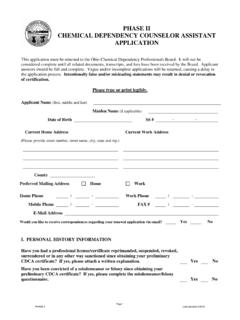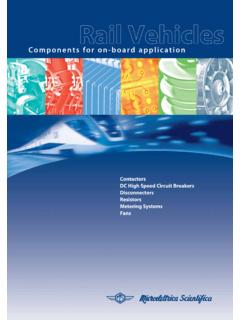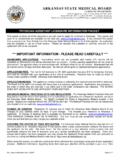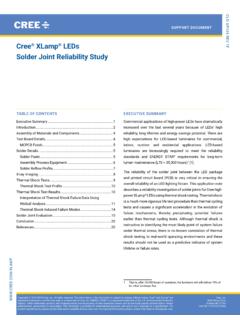Transcription of Master s Degree Accreditation Manual & Application
1 Master s Degree Accreditation Manual & Application Chemical Dependency Professionals board Vern Riffe Center, 77 South High Street, 16th Floor Columbus, OH 43215 Phone: 614-387-1110 Fax: 614-387-1109 Master s Degree Accreditation Manual & Application 1. Introduction 2. Purpose of Accreditation 3. Benefits of Accreditation 4. Eligibility Requirements 5. Required Masters Degree Content Areas and Required Contact Hours 6. Chemical Dependency Specific Education 7. Accreditation Process 8. Annual Report to the Education Institution 9.
2 Accreditation Application Form 10. Accreditation Agreement 11. Appendix Master s Degree Grid 12. Appendix Definitions of Chemical Dependency Specific Education 13. Appendix Chemical Dependency Specific Education Grid 1. INTRODUCTION The Chemical Dependency Professionals board (hereafter referred to as board ) is a state licensing board that certifies and licenses individuals who provide chemical dependency prevention and treatment services to individuals, families, groups, organizations and communities. The board is committed to quality alcohol and other drug treatment and prevention services for Ohio.
3 One of the most important aspects of promoting quality services is the certification and licensure of chemical dependency counselors and prevention professionals. Individuals qualify for certification/licensure by meeting requirements in formal education, chemical dependency training, work experience, and by having success on international examinations. The formal education requirement for our top level of licensed independent chemical dependency counselors (LICDC) is a Masters Degree in a qualified behavioral science Degree program.
4 In order to qualify, the Masters Degree program must include specific content areas and a specific number of contact hours in each area. The board recognizes that many education institutions have designed Degree curricula specifically to prepare students to be professional counselors. The board recognizes these efforts and has developed Accreditation standards for these programs. These standards represent an opportunity for the partnership of education institutions and the board to assure high quality training. 2. PURPOSE OF Accreditation The board s Accreditation is an official endorsement of counselor training based upon published standards and criteria.
5 Accreditation assures that persons entering the field of chemical dependency counseling through an accredited education program have met the minimum requirements for formal education necessary for the LICDC level. 3. BENEFITS OF Accreditation FOR THE EDUCATION INSTITUTION - Assurance that the program meets an acceptable level of standards and is applicable toward board licensure will increase the program s ability to attract students interested in working in chemical dependency. Accreditation by the board may be included in the education institution s promotional material.
6 FOR THE STUDENT - Students will be assured that the education that they are pursuing will meet the formal education/Masters Degree requirements for board licensure at the LICDC level. FOR THE PROFESSION - Accreditation will promote an increased level of competence in the chemical dependency treatment profession. FOR THE COMMUNITY - Accreditation will provide assurance that there will be a source of professionals who have received training necessary for competent practice in chemical dependency treatment. 4. ELIGIBILITY REQUIREMENTS The education institution must be accredited by an accrediting agency accepted by the Ohio board of Regents.
7 Please contact the board office for questions regarding acceptable accrediting agencies. 5. REQUIRED MASTERS Degree CONTENT AREAS AND REQUIRED CONTACT HOURS The Masters Degree program must provide the following subject content and the following number of contact hours in each content area. The content and related hours can be provided in any combination of courses. One semester hour equals fifteen contact hours; one quarter hour equals ten contact hours. Theories of Counseling and Psychotherapy - 80 contact hours required Courses which examine the theoretical foundations of counseling and psychotherapy which may include introductory or advanced survey courses as well as specific theoretical orientations such as Reality Therapy, Cognitive Therapy, Brief Psychotherapy, etc.
8 Counseling Procedures 40 contact hours required Courses which review specific techniques and skills used in counseling and psychotherapy and offer students opportunities to practice these skills through role play, exercises, and/or work with live clients. Group Process and Techniques 40 contact hours required Courses which utilize didactic and experiential methods to review the dynamics of therapy and/or task groups and the techniques which are utilized in facilitating such groups. Relationship Therapy 40 contact hours required Courses which review the dynamics of intimate relationships which are typically founding couple and family systems and the techniques which are used in counseling and psychotherapy within these systems.
9 Introductory courses providing an overview of this area as well as courses focused on specific theoretical and/or technical perspectives are appropriate. Research Methods/Statistics 40 contact hours required Courses which review the basic components or research in the behavioral sciences including types of research, data collection, research design, basic elements and procedures used in statistical analysis, interpretive methods, and qualitative analysis. Fundamentals of Assessment and Diagnosis, including Measurement and Appraisal - 80 contact hours required Courses which utilize didactic and experiential methods to review assessment and diagnostic procedures including interviewing, conducting a mental status examination and obtaining relevant data from collaborative sources and the procedures necessary for the appropriate utilization of individual and group instruments of measurement which may include neuropsychological tests.
10 Instruments evaluating intelligence and/or cognitive functioning, projective testing, instruments assessing personality, and specialized instruments evaluating particular disorders. Psychopathology- 40 contact hours required Courses which survey human psychopathology including the etiology and prognosis of mental, behavioral, and emotional disorders. Such courses may review abnormal psychology, consider the historical development of the conceptualization of psychiatric disorders, and/or focus on specific disorders or categories of disorders.








